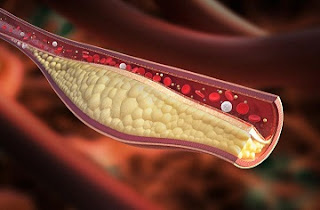Blood Creatinine | Blood creatinine test | Health lines
Blood Creatinine
 |
| Blood Creatinine |
The kidneys keep blood creatinine within a normal range. Creatinine has been shown to be a fairly reliable indicator of kidney function. A high creatinine level means impaired kidney function or kidney disease.
As the kidneys become impaired for any reason, the level of creatinine in the blood will increase due to poor clearance of creatinine from the kidneys. Abnormally high levels of creatinine thus warn of a possible dysfunction or failure of the kidneys. It is for this reason that standard blood tests regularly check the amount of creatinine in the blood.
Blood Creatinine Test / What is Blood Creatinine Test
Increased levels of Creatinine and BUN in the blood may mean that your kidneys are not working as they should. Your health care professional will take other factors, such as your medical history and physical exam, into account in determining what condition, if any, may affect your kidneys.
Here are some examples of conditions that can increase creatinine levels:
- Damage or swelling of blood vessels in the kidneys (glomerulonephritis) caused, for example, by infection or autoimmune diseases.
- Bacterial infection of the kidneys (pyelonephritis)
- Death of cells in small kidney tubes (acute tubular necrosis) caused, for example, by drugs or toxins
- Conditions that can block the flow of urine in the urinary tract, such as prostate disease.
High Blood Creatinine?
- A person with a single kidney may have a normal level of around 1.8 or 1.9.
- Creatinine levels that reach 2.0 or more in babies and 5.0 or more in adults may indicate severe kidney failure.
How to Lower Blood Creatinine Levels
1. Do not take supplements containing creatine
It is transported to your muscles where it is used for energy. Unused creatine not used for energy turns into creatinine, a waste product. Some athletes use these supplements to improve athletic performance.
2. Reduce your protein intake
Research shows that consuming large amounts of protein can increase creatinine levels, at least temporarily. Especially cooked red meat can affect creatinine.
People who eat a diet high in red meat or other sources of protein, including dairy, may have higher creatinine levels than people who eat less of these foods. If you eat a lot of red meat, switch to vegetable dishes. Try to trade beef burgers for:
- vegetable patties
- hearty vegetable stew
- Lentil soup
3. Eat more fiber
More research is needed to determine the effect that dietary fiber has on creatinine levels. But one study showed significant reductions in creatinine levels in people with chronic kidney disease who increased their fiber intake.
Fiber can be found in many foods, including:
- vegetables
- whole grains



Yes its better
ReplyDelete